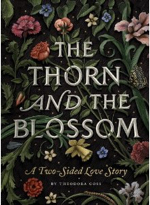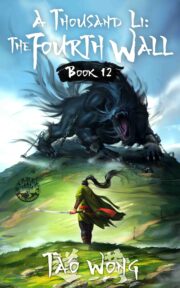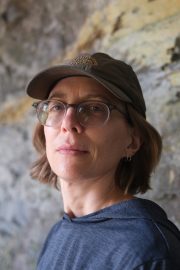Guest Post: Writers and Families
by Theodora Goss
On the one hand, this is good because it gives the writer something to write about. On the other hand, it’s bad because it means the writer is under scrutiny. Families read the writing, and they inevitably evaluate it relative to themselves. Is a story really “about” the family? Does it put forth a position with which the family disagrees? Does it represent members of the family in a negative way?
This reminds me of a former boyfriend whom I once called Raven, and who therefore imagines that every raven in every story or poem is always him. (Even the unflattering representations.)
Families are like that. And it’s probably worse when the writer is writing non-fiction, giving interviews or describing his or her life in a blog post. Everything is taken to reflect on the family.
My family has a strange attitude toward my writing, which I think is almost always the case unless the writer comes from a family of professional creators. (By professional, I mean people who actually make a portion of their incomes from a creative endeavor — writing, art, dance, etc.) When I met my cousins in Debrecen, they told me they’d heard I’d become a famous writer, of fantasy like J.R.R. Tolkien. Of course, I’m not at all a famous writer, and what I write is nothing like Tolkien. They’d never read my writing themselves — that was simply the general family impression.
My parents’ generation was raised under communism, and still retains the assumption that literature is important to the extent that it adheres to literary realism. I remember being given Earnest Hemingway’s The Old Man and the Sea when I was a child and being told that it was great literature. Now, I like Hemingway very much, but I loathe that particular book, partly because it’s boring, and partly because I was given it as an implicit model for what writing should be like. I think becoming a writer always involves a rebellion against what and how one was told to write. My rebellion is in part against the dreariness and tedium of what I was taught as great literature.
So it’s a problem, really. Writing professionally means writing for an audience, and that means one’s writing is out there, to be judged — including by one’s family members. Who, in some way, are the group of people it is least for. Writers treat their experiences ruthlessly — witness my making fun of the way Hungarians do laundry, which got me into trouble, but surely if I can make fun of anything, it is my own country, my own people. We are not merciful, we writers. We take things apart, we put them back together.
I’m not sure what to tell writers’ families about all this. I suppose this, at least, might be reassuring: if your name is Judith and the writer creates a character named Judith, that character is not you. Not even if Judith majored in the same thing you did in college. The writer is using you to create something completely different. Of course, no one likes to be used. But at least it’s better than actually being written about. The writer transforms everything, but in doing so he or she uses the material that is at hand. This implies no particularly insight into you, the actual Judith — either good or bad.
I write this because it’s something I discussed with Catherynne Valente, while we were both in Budapest — and also because I’ve had family members reading my writing lately, and it’s frustrating to be misunderstood. But then, it’s probably frustrating to be in a writer’s family as well. After all, if the writer becomes famous (there is always that miniscule chance), the family will be remembered only relative to the writing — as Hemingway’s is. It’s rather a horrible thought, that one might be a line in someone else’s Wikipedia entry, as writer’s parents, spouses, and even children often are. I’ve always felt sorry for Christopher Milne — although he has his own entry, mostly because he wrote about being Christopher Robin.
So basically, it kind of sucks having a writer in your family. But it’s difficult for a writer as well, because people who aren’t writers or editors or publishers have a hard time understanding exactly what it is we do, how we transmute life. How even in a blog post what we present is a story, intended to be read by an audience. How even we become our own characters. (What I write here is not about the ordinary, everyday Dora, but about Theodora Goss, who has a series of adventures and insights. She is real, and she is me, but she does not represent my every thought or moment. Perhaps it might be more accurate to say that she is realish.)
It’s difficult, isn’t it? And in the face of it, what the writer has to do is go on being ruthless. Because if you don’t mine the material, if you hold back and censor yourself, which is so easy to do when you know your writing is being read, you betray your allegiance to the story. And that is where your allegiance lies. Milne may have been a bad father, Hemingway was certainly a bad husband — but they were excellent writers.
•••
 Theodora Goss was born in Hungary and spent her childhood in various European countries before her family moved to the United States. Although she grew up on the classics of English literature, her writing has been
Theodora Goss was born in Hungary and spent her childhood in various European countries before her family moved to the United States. Although she grew up on the classics of English literature, her writing has been
influenced by an Eastern European literary tradition in which the boundaries between realism and the fantastic are often ambiguous. Her publications include The Thorn and the Blossom: A Two-Sided Love Story (2012); the short story collection In the Forest of Forgetting (2006); Interfictions (2007), a short story anthology coedited with Delia Sherman; and Voices from Fairyland (2008), a poetry anthology with critical essays and a selection of her own poems. She has been a finalist for the Nebula, Locus, Crawford, and Mythopoeic Awards, as well as on the Tiptree Award Honor List, and has won the World Fantasy and Rhysling Awards. For more information, please visit her blog, where this post first appeared.



